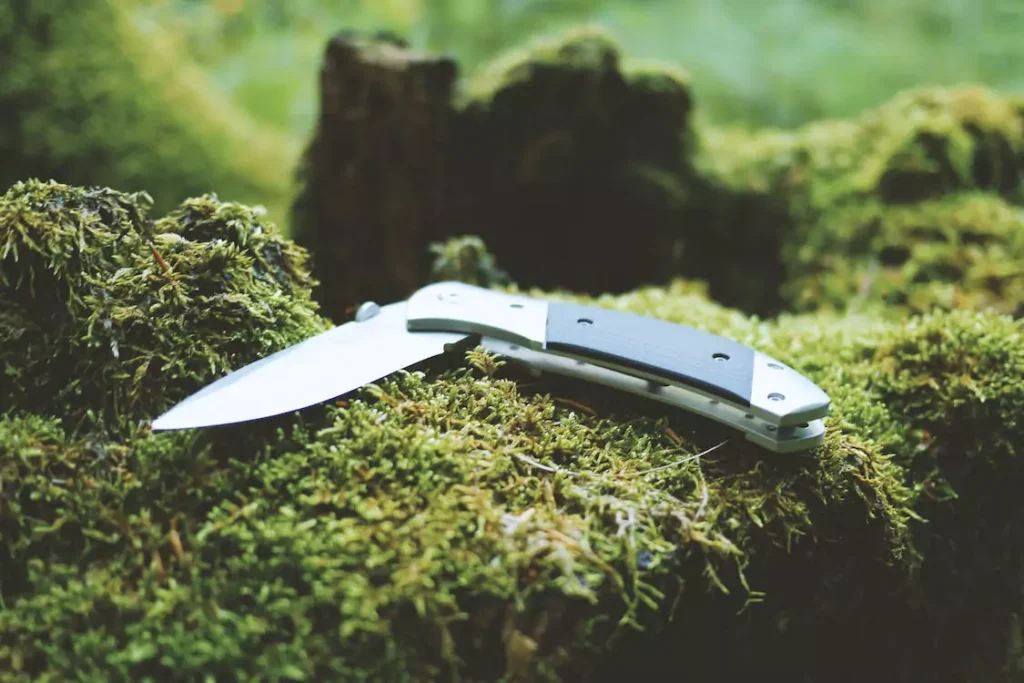Introduction to Butterfly Knives
Butterfly knives, also known as balisongs, have a long and storied history. Originating in the Philippines, these knives were traditionally used as tools and weapons. However, they have gained popularity around the world for their unique design and flipping action. In recent years, butterfly knives have become a popular collector’s item and are often featured in movies and video games.
Understanding the legal status of butterfly knives is crucial, especially in California. The state has strict laws regarding the possession and carrying of certain types of knives, including butterfly knives. It is important for individuals to be aware of these laws to avoid any legal consequences.

Legal Status of Butterfly Knives in California
California has specific laws in place regarding the possession and carrying of knives. The state defines a butterfly knife as a knife with a blade that is concealed within a handle that splits into two sections, which can be rotated around the blade axis to open or close the knife.
Under California law, it is illegal to possess or carry a butterfly knife in public. However, there are exceptions to this rule, such as for law enforcement officers and individuals who use butterfly knives as part of their profession or occupation.
Definition of a Butterfly Knife
A butterfly knife, also known as a balisong, is a folding knife that features a unique handle design. The handle is split into two sections that can be rotated around the blade axis to open or close the knife. This design allows for quick and easy deployment of the blade.
There are different types of butterfly knives available on the market. The most common type is the standard butterfly knife, which features a single-edged blade and a handle with two rotating sections. There are also variations of butterfly knives with different blade shapes and handle designs.
California Penal Code on Butterfly Knives
California Penal Code Section 17235 specifically addresses butterfly knives. It states that it is illegal to possess, sell, or import a butterfly knife in the state of California. This law applies to both fixed-blade and folding butterfly knives.
The code also defines a butterfly knife as a knife with a blade that is concealed within a handle that splits into two sections, which can be rotated around the blade axis to open or close the knife. This definition is important to understand, as it determines whether a knife falls under the category of a butterfly knife and is subject to the restrictions outlined in the code.
Exceptions to the Butterfly Knife Ban in California
While it is generally illegal to possess or carry a butterfly knife in California, there are exceptions to this rule. Law enforcement officers are allowed to possess and carry butterfly knives as part of their duties. Additionally, individuals who use butterfly knives as part of their profession or occupation are also exempt from the ban.
Examples of professions that are allowed to carry butterfly knives include chefs, who may use them as a culinary tool, and trainers or performers who use butterfly knives for entertainment purposes. However, it is important for individuals in these professions to be able to demonstrate a legitimate need for carrying a butterfly knife and to comply with any additional regulations or requirements.
Penalties for Possessing or Selling Butterfly Knives in California
Violating California’s butterfly knife laws can result in serious consequences. Possessing or selling a butterfly knife in California is considered a misdemeanor offense. The penalties for this offense can include fines of up to $1,000 and/or imprisonment for up to one year.
It is important to note that these penalties can vary depending on the circumstances of the offense and the individual’s criminal history. Repeat offenders may face harsher penalties, and individuals who use a butterfly knife in the commission of a crime may face additional charges.
Alternatives to Butterfly Knives in California
For individuals who are interested in owning a knife for self-defense or other purposes, there are legal alternatives to butterfly knives in California. Some options include:
1. Folding Knives: Folding knives with a blade that is not concealed within the handle are legal to possess and carry in California. These knives typically have a blade that folds into the handle and can be easily deployed when needed.
2. Fixed-Blade Knives: Fixed-blade knives are legal to possess and carry in California as long as they are openly carried and not concealed. These knives have a blade that is permanently fixed in place and do not fold into the handle.
3. Multi-Tools: Multi-tools, such as Swiss Army knives or Leatherman tools, are legal to possess and carry in California. These tools typically feature a variety of blades and other tools that can be useful in a variety of situations.
It is important to research and understand the specific laws and regulations regarding the possession and carrying of knives in California before making a purchase.
Conclusion: Understanding the Law on Butterfly Knives in California
In conclusion, butterfly knives have a rich history and have gained popularity around the world for their unique design and flipping action. However, it is important to understand the legal status of butterfly knives in California to avoid any legal consequences.
California has specific laws in place regarding the possession and carrying of butterfly knives. It is generally illegal to possess or carry a butterfly knife in public, with exceptions for law enforcement officers and individuals who use butterfly knives as part of their profession or occupation.
Violating California’s butterfly knife laws can result in serious penalties, including fines and imprisonment. It is important for individuals to be aware of these consequences and to consider legal alternatives to butterfly knives if they wish to own a knife for self-defense or other purposes.
By understanding the law on butterfly knives in California, individuals can ensure that they are in compliance with the law and avoid any unnecessary legal trouble.


